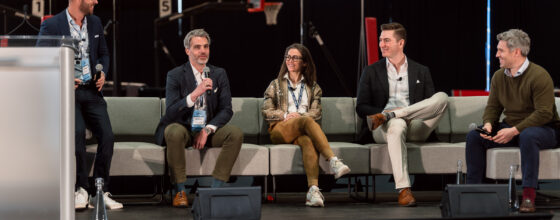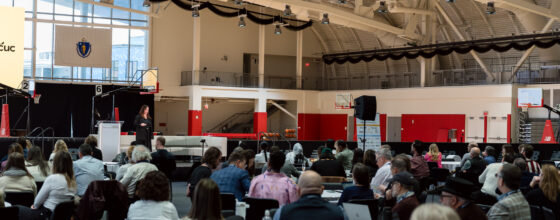Co-Creating Small(er) City Entrepreneurship Ecosystems

Coworking and Shared Office for Municipal Innovation Strategies.
by Jayson White
Attention Economic Developers! The real estate under your city’s workers’ feet is changing fast. And there’s a lot for you to do about it.
Unless you live under a rock, you’ve read about the meteoric rise of WeWork, the proliferation of shared spaces and flexible office companies like Industrious, Serendipity Labs and Knotel, and the responses that landlords and brokerages have been mounting to meet the rising demand for on-demand, serviced office.
What you won’t necessarily read in the headlines or the real estate blogs are the ways that municipal leaders and regional economic development authorities can build on these trends. Municipal officials and university teams can work with these big ideas in at least 3 practical ways:
- Take the lead in building the boldest ideas and bringing the best shared office brands to your city,
- Make sure the flex office options that take flight in your metros offer quality service at the right price, and
- Help those spaces grow and innovate to help your best and brightest entrepreneurs flourish, hire, and grow in the cities where they were born.
Quite beyond the fast growth of a few name-brand companies, a number of really clever ideas have sprouted up that build local wealth and implement higher and better uses of existing economic development dollars. A few key examples include:
In Montrose, Colorado, the Chamber of Commerce was searching for a new strategy for growing businesses and attracting talent–and they didn’t have to look far to find their strongest ally. Montrose-native Proximity Space had already been running a successful Main Street coworking shop in the town of 20,000, when an idea to team up with the city sprang up.
“Big cities build big infrastructure, roads, transit and stadiums to facilitate growth,” says Proximity co-founder Dennis Lankes. “In a town like ours, we can build, too. Coworking can be the ‘stadium’ for entrepreneurs and young talent to congregate in.” The city, and the Chamber’s new Executive Director Chelsea Rosty caught the vision, and got to work. The Chamber sold its outsized and outdated real estate and re-directed its time to projects that the next generation of Montrose business leaders really need and want.
In the Pittsburgh suburb of New Kensington, Penn State University has partnered with Westmoreland County government to acquire a building’s in the community’s downtown to invest in creating a coworking space and shared office for local entrepreneurs. The project is an initiative of the university’s Launchbox Program, to bring Penn State resources to support local entrepreneurs and small businesses.
Rather than reinvent the wheel in the process of building the local entrepreneurship ecosystem, the University and its partners turned to the innovative Pittsburgh developers behind the Beauty Shoppe coworking network to give the design, programming and marketing a real expert’s approach.
And Across New York State, Munis, SUNYs and regional groups are investing in shared office to grow their entrepreneurship ecosystems as well. Syracuse, New York’s University-sponsored Tech Garden combines shared office with expert-led and mentor-driven business incubation. There, the Garden’s success spurred private sector stepped in and the space Syracuse CoWorks opened up just blocks away. These successes led local developer Troy Evans to build the co-living enterprise CommonSpace, building the shared economy in a central New York in a whole different direction.
In Troy, NY outside Albany, the Innovation Garage launched with support from the New York State Economic Development Council and plenty of regional support. Founder Tom Nardacci is building on this momentum to start a gov-innovation space in Albany. Buffalo’s Innovation Center is growing companies with support from the Buffalo Niagara Medical Campus. And in nearby Niagara Falls, local serial entrepreneur Pat Whalen is breathing life into that former tourism mecca by building on the region’s historic, and untapped
This is not to say the fit between cities, educators or economic developers and coworking operators is so simple to work out. According to veteran tech-based economic development consultant, David Hochman–
“Cowork operators are fundamentally businesspeople, and they are wary of government programs and agencies,” says Hochman. “The burden is largely on the economic development community to reach out to cowork operators, involve them in the formation and execution of local economic-development strategy, and encourage them to connect to institutional, state, and federal resources that can help keep fast-growing companies local by supporting them all the way through their growth trajectory.”
We hope you will join us at GCUC NYC 2018 to consider the options. Economic Developers and city officials interested in joining can register with the code AORISGCUC for $75 off conference registration.







